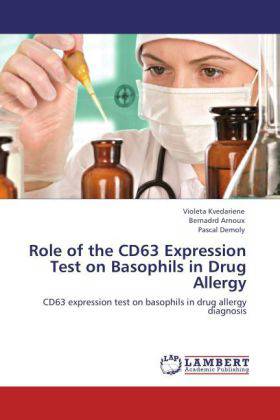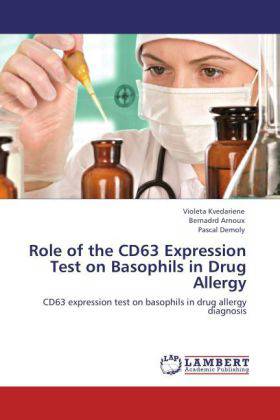
- Afhalen na 1 uur in een winkel met voorraad
- Gratis thuislevering in België vanaf € 30
- Ruim aanbod met 7 miljoen producten
- Afhalen na 1 uur in een winkel met voorraad
- Gratis thuislevering in België vanaf € 30
- Ruim aanbod met 7 miljoen producten
Zoeken
Role of the CD63 Expression Test on Basophils in Drug Allergy
CD63 expression test on basophils in drug allergy diagnosis
Violeta Kvedariene, Bernadrd Arnoux, Pascal Demoly
Paperback | Engels
€ 64,45
+ 128 punten
Omschrijving
Diagnosis of drug hypersensitivity is indeed based on history and clinical manifestations and on skin and drug provocation tests. There are limitations to the interpretation of in vivo tests as co-factors at the time of onset, the metabolism of drug, the presentation of haptens to the immune system may be different after epicutaneous or oral challenge. Therefore, biological tests would be a highly desirable solution for establishing the nature of the culprit agent. In the present work, the results of the CD63 expression tests on basophils were analysed using a novel distribution depending on the time delay between the reaction and the drug intake, the tested drug concentration and the chemical drug structure, in both immediate and non-immediate reactions. The importance of cut-off values was assessed in immediate and non-immediate reactions induced by haptenic molecules. The discordance between the results of specific IgE to -lactams and the CD63 expression test on basophils was analysed in -lactam allergic patients. The subgroup of patients with severe drug-induced reactions was assessed to evaluate the results of CD63 expression tests in clinical practice.
Specificaties
Betrokkenen
- Auteur(s):
- Uitgeverij:
Inhoud
- Aantal bladzijden:
- 100
- Taal:
- Engels
Eigenschappen
- Productcode (EAN):
- 9783845440040
- Verschijningsdatum:
- 9/02/2012
- Uitvoering:
- Paperback
- Afmetingen:
- 150 mm x 220 mm
- Gewicht:
- 168 g

Alleen bij Standaard Boekhandel
+ 128 punten op je klantenkaart van Standaard Boekhandel
Beoordelingen
We publiceren alleen reviews die voldoen aan de voorwaarden voor reviews. Bekijk onze voorwaarden voor reviews.








